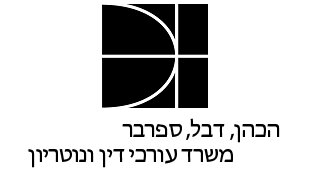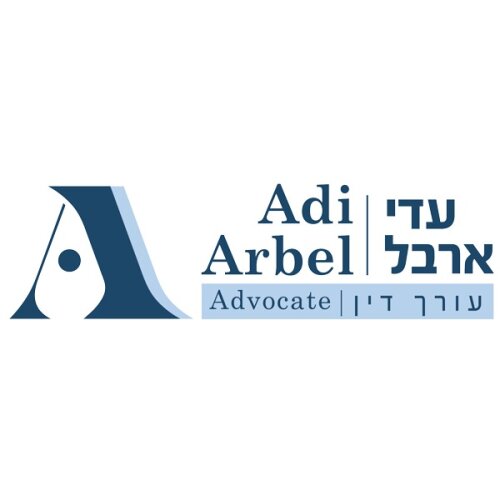Best Speeding & Traffic Ticket Lawyers in Jerusalem
Share your needs with us, get contacted by law firms.
Free. Takes 2 min.
List of the best lawyers in Jerusalem, Israel
About Speeding & Traffic Ticket Law in Jerusalem, Israel
Speeding and traffic ticket laws in Jerusalem, Israel, are designed to maintain orderly and safe road conditions for all drivers, passengers, and pedestrians. These laws cover various infractions, including speeding, illegal parking, reckless driving, and other traffic violations. The enforcement of these laws is strict, with regular monitoring by the Israel Police, particularly through speed cameras, traffic patrols, and checkpoints. Penalties for traffic violations can range from fines and points on the driver's license to more severe consequences such as license suspension or even imprisonment in extreme cases.
Why You May Need a Lawyer
While minor traffic violations can often be resolved by paying a fine, there are several situations where hiring a lawyer can be beneficial or even necessary:
- Disputing a Ticket: If you believe a traffic ticket was issued in error, a lawyer can help challenge the ticket in court.
- Accumulation of Points: Accumulating too many points on your driving record can lead to license suspension. Legal assistance may help reduce the penalties or avoid suspension.
- Severe Violations: Incidents involving reckless driving, driving under the influence, or serious accidents may require legal defense.
- Commercial Drivers: For individuals holding commercial licenses, traffic violations can have significant career implications. A lawyer can help navigate these specific challenges.
Local Laws Overview
Jerusalem, like all of Israel, follows national traffic laws, with some local regulations specific to city locations. Key aspects include:
- Speed Limits: The national speed limits are generally 50 km/h in urban areas, 80 km/h on secondary roads, and 100-120 km/h on highways, unless otherwise posted.
- Points System: Israel has a demerit point system wherein points accumulate for various infractions. Certain thresholds lead to mandatory driving courses, retaking tests, or license suspension.
- Speed Cameras: Automated speed enforcement cameras are widely used. Fines can be issued based on these readings without needing a physical stop by police.
- Seat Belt and Mobile Phone Use: It's mandatory to wear seat belts at all times, and using a mobile phone without a hands-free system while driving is illegal.
- Parking Restrictions: Cities have designated parking areas, and violating these can result in fines or towing.
Frequently Asked Questions
What should I do if I receive a speeding ticket?
You can either pay the fine within the stipulated period or consult with a lawyer to contest the ticket if you believe it was issued in error.
How long do points stay on my driving record?
Points remain on your record for two years from the date of the offense. However, more serious offenses can have longer-lasting impacts.
Can speeding tickets affect my insurance rates?
Yes, accumulating points on your driving record can result in higher insurance premiums.
Is it possible to get a reduced penalty for a speeding ticket?
In some cases, a lawyer can negotiate on your behalf to reduce the fine or points associated with the ticket.
What happens if I ignore a traffic ticket?
Ignoring a traffic ticket can escalate the fine and lead to additional penalties, including potential issues with your driver's license.
Am I required to appear in court for a traffic violation?
For minor infractions, you typically don't need to appear in court if you pay the fine. More serious violations may require a court appearance.
Can I lose my license for speeding?
Excessive speeding or accumulating too many points can result in a suspension of your driver's license.
What is a defensive driving course, and do I need to take one?
If you accumulate a certain number of points, you may be required to take a defensive driving course as part of the penalty.
Can tourists or non-residents receive traffic tickets in Israel?
Yes, traffic laws apply to all drivers in Israel, including tourists and non-residents. Traffic fines may need to be settled before leaving the country to avoid legal complications.
How can I check how many points I have on my driving record?
You can check the status of your driving points through the Ministry of Transport and Road Safety's official channels.
Additional Resources
For further assistance, you may find the following resources helpful:
- Ministry of Transport and Road Safety: They provide information on traffic laws and driving regulations in Israel.
- Israel Police: Official site for queries related to traffic enforcement and tickets.
- Legal Aid Services: Organizations providing legal assistance and advice for various legal issues, including traffic violations.
- Local Law Firms: Consider consulting with local law firms specializing in traffic law.
Next Steps
If you need legal assistance for a speeding or traffic ticket in Jerusalem, Israel, consider taking the following steps:
- Document the Incident: Gather all relevant information, including the ticket, any correspondence, and details about the incident.
- Consult a Lawyer: Reach out to a lawyer who specializes in traffic law for a consultation. They can provide you with advice on how to proceed.
- Understand Your Rights: Educate yourself on local traffic laws and your rights as a driver in Israel to better navigate the legal process.
- Consider Defensive Actions: If you're at risk of accumulating points, look into defensive driving courses or other remedial actions to mitigate potential penalties.
By taking these steps, you can better manage and address any speeding and traffic ticket issues you may encounter in Jerusalem, Israel.
Lawzana helps you find the best lawyers and law firms in Jerusalem through a curated and pre-screened list of qualified legal professionals. Our platform offers rankings and detailed profiles of attorneys and law firms, allowing you to compare based on practice areas, including Speeding & Traffic Ticket, experience, and client feedback.
Each profile includes a description of the firm's areas of practice, client reviews, team members and partners, year of establishment, spoken languages, office locations, contact information, social media presence, and any published articles or resources. Most firms on our platform speak English and are experienced in both local and international legal matters.
Get a quote from top-rated law firms in Jerusalem, Israel — quickly, securely, and without unnecessary hassle.
Disclaimer:
The information provided on this page is for general informational purposes only and does not constitute legal advice. While we strive to ensure the accuracy and relevance of the content, legal information may change over time, and interpretations of the law can vary. You should always consult with a qualified legal professional for advice specific to your situation.
We disclaim all liability for actions taken or not taken based on the content of this page. If you believe any information is incorrect or outdated, please contact us, and we will review and update it where appropriate.













